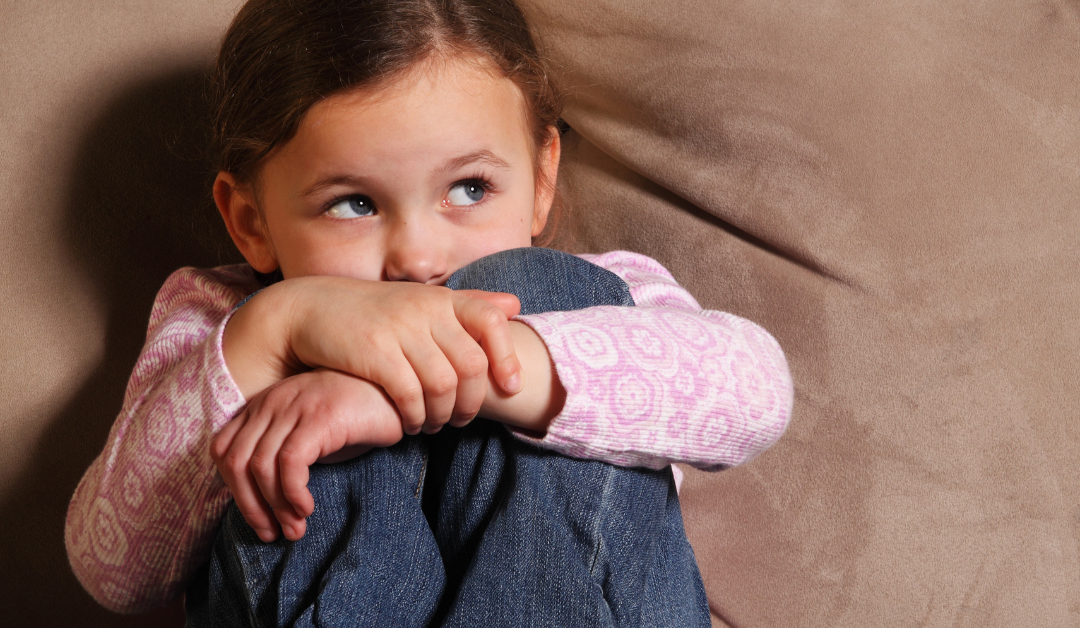Childhood should be a time of wonder and exploration, but for some children, it can be overshadowed by anxiety. Anxiety in children is more common than we might think, and as parents, educators, or caregivers, it is essential to be vigilant and proactive in recognizing and addressing these challenges.
In this blog, we will explore how to recognize the signs of anxiety in children and provide practical strategies to help them navigate through their worries and fears.
Signs of Anxiety in Children:
- Excessive worrying: Children with anxiety may worry excessively about everyday situations or upcoming events, even when the concerns seem disproportionate.
- Physical symptoms: Complaints of stomach aches, headaches, or other unexplained physical symptoms can be indications of underlying anxiety.
- Sleep disturbances: Anxious children may experience difficulties falling asleep or staying asleep, leading to fatigue and irritability.
- Avoidance behavior: They may avoid certain situations or activities that trigger their anxiety, such as school, social gatherings, or new experiences.
- Perfectionism: Anxious children may have a fear of making mistakes or being judged, leading them to strive for perfection in everything they do.
- Irritability: Anxiety can make children irritable and prone to emotional outbursts.
-
Creating a Safe and Open Environment:
Building a trusting and open environment is crucial for children to feel comfortable sharing their feelings. Encourage open communication and let them know it is okay to talk about their worries without judgment. Listen actively and empathetically to what they have to say, ensuring they feel understood and supported.
- Teach Relaxation Techniques: Teaching children relaxation techniques can empower them to manage anxiety when it arises. Simple practices such as deep breathing exercises, mindfulness, or progressive muscle relaxation can help calm their nervous system and reduce anxiety levels.
- Set Realistic Goals: Avoid putting excessive pressure on children to achieve unrealistic goals or expectations. Instead, encourage and praise their efforts, regardless of the outcome. A positive and nurturing environment will help them build resilience and self-confidence.
- Gradual Exposure: If a child is avoiding certain situations due to anxiety, consider implementing gradual exposure. Break down the feared situation into smaller, manageable steps, and support them through each phase. This approach allows children to build confidence gradually and face their fears in a controlled manner.
- Seek Professional Support: If you notice persistent signs of anxiety that significantly impact a child’s daily life and functioning, consider seeking professional support. Mental health professionals, such as child psychologists or therapists, are equipped to provide specialized interventions and guidance tailored to the child’s needs.
In conclusion, recognizing and addressing anxiety in children is a vital aspect of nurturing their emotional well-being. By being attentive to the signs of anxiety and providing a safe and supportive environment, we can help children cope with their worries and fears.
Children’s Mental Health Services in Texas
Accepting Medicaid & Private Insurance
Reach out
Phone Number: 1-855-AOC-6100
24 Hours Crisis Line: 832-934-7770
Hours: Monday-Friday 9-5PM
Location: Houston & San Antonio areas
Houston Email: admin@aocoutreachservices.com
San Antonio Email: admin.sa@aocoutreachservices.com
Insurance Accepted
Medicaid, Texas Children Health Plan, Superior Health Plan, Molina Healthcare, United Healthcare
Houston Office: 6671 Southwest Freeway, Suite 675, Houston, Texas, 77074
San Antonio Mailing Address: 45 Northeast Loop 410 Suite 207, San Antonio, Texas 78216
Follow Us
learn more
Start Services


